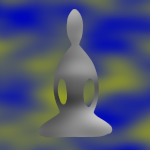Dear Friends,
The fourth factor is right (or wise) action. This is a practice of avoiding harm through our physical actions.
The Buddha once gave instructions to his son, Rahula. He started by asking, “What is the purpose of a mirror?” to which Rahula replied, “It’s for checking your reflection.”
The Buddha then says, “In the same way, deeds of body, speech, and mind should be done only after repeated checking.”
The repeated checking is to ask, before, during, and after an action, “Does this act that I want to do/am doing/have done lead to hurting myself, hurting others, or hurting both? Is it unskillful, with suffering as its outcome and result?”
When we reflect before an action, if we determine this might cause some harm, then the Buddha says, “To the best of your ability, you should not do such a deed.” But if it doesn’t seem like it will cause harm, we can proceed.
While we are doing an action, we can check in again. If it looks like this is going to cause harm, then stop doing it! If not, then we can continue.
And after, we can check again! If it was something that wasn’t skillful, we can “clarify such a deed to the teacher or a sensible spiritual companion. And … you should restrain yourself in future.”
But if we determine, “It’s skillful, with happiness as its outcome and result.”, then the Buddha says, “you should live in rapture and joy because of this, training day and night in skillful qualities.”
(Advice to Rāhula at Ambalaṭṭhika, MN61, https://suttacentral.net/mn61/en/sujato)
This last point is important to notice, because we do many things that are skillful in our days, and we might just shrug them off. So continue to do your best not to cause harm, and take joy in the many ways you are doing good in this world.
With good wishes,
Andrea
